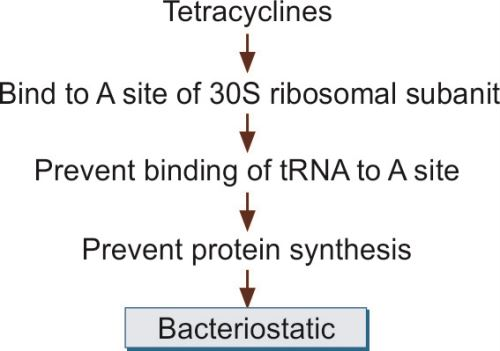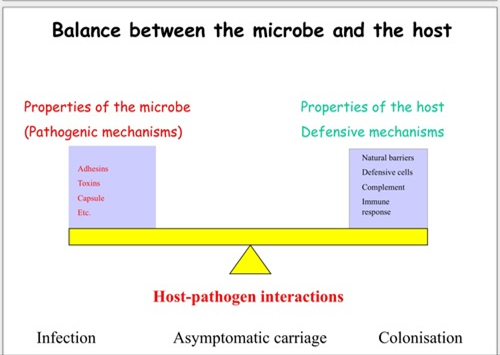What is the difference between bactericidal drugs and bacteriostatic drugs?
Bactericidal and bacteriostatic are used interchangeably.
Bactericidal drugs are directly lethal to bacteria, and bacteriostatic drugs work to slow bacterial growth but do not cause cell death.
Bacteriostatic drugs are directly lethal to bacteria, and bactericidal drugs work to slow bacterial growth but do not cause cell death.
A bactericidal drug can cause death to the host, whereas a bacteriostatic drug only affects bacteria.
The Correct Answer is B
A. "Bactericidal and bacteriostatic are used interchangeably."
Explanation: This statement is incorrect. Bactericidal and bacteriostatic are two distinct categories of antibiotics with different mechanisms of action.
B. "Bactericidal drugs are directly lethal to bacteria, and bacteriostatic drugs work to slow bacterial growth but do not cause cell death."
Explanation: This statement is correct. Bactericidal drugs kill bacteria directly, leading to their death, while bacteriostatic drugs inhibit bacterial growth without causing immediate cell death.
C. "Bacteriostatic drugs are directly lethal to bacteria, and bactericidal drugs work to slow bacterial growth but do not cause cell death."
Explanation: This statement is incorrect. It is the opposite of the correct explanation. Bacteriostatic drugs do not directly kill bacteria, and bactericidal drugs do cause bacterial death.
D. "A bactericidal drug can cause death to the host, whereas a bacteriostatic drug only affects bacteria."
Explanation: This statement is not entirely accurate. While some bactericidal drugs can be more toxic to the host, it depends on the specific drug and its dosage. Bacteriostatic drugs, on the other hand, generally do not directly harm the host. The primary distinction between the two categories is their impact on bacterial growth and survival.
Nursing Test Bank
Naxlex Comprehensive Predictor Exams
Related Questions
Correct Answer is A
Explanation
A. "Tetracycline inhibits protein synthesis."
Tetracycline inhibits bacterial protein synthesis by binding to the bacterial ribosomes, which are crucial for making proteins. This disruption in protein synthesis prevents bacterial growth and replication.
B. "Tetracycline blocks RNA synthesis."
Tetracycline primarily affects protein synthesis, not RNA synthesis. It binds to the 30S subunit of the bacterial ribosome and disrupts the translation process.
C. "Tetracycline degrades the bacterial cell wall."
Tetracycline does not target the bacterial cell wall. Drugs like penicillin and cephalosporins work by disrupting cell wall synthesis, but tetracycline operates differently by inhibiting protein synthesis.
D. "Tetracycline binds to magnesium ions."
Tetracycline does not specifically bind to magnesium ions. Its primary mode of action involves binding to the bacterial ribosome, as mentioned in the first correct statement.

Correct Answer is ["A","B","C","D"]
Explanation
A. Viral Latency: Some viruses, like herpesviruses, can enter a latent phase where they hide in host cells, making it challenging for the immune system to detect and target them.
B. Host Defense Failure: This term encompasses situations where the host's defense mechanisms, including physical barriers and immune responses, are not effective in preventing or controlling infection. For example, pathogens may develop mechanisms to evade detection by the immune system.
C. Immunosuppression: Pathogens can actively suppress the host's immune response. They may produce molecules or proteins that inhibit the immune system's ability to mount an effective defense.
D. Immunodeficiency: Individuals with immunodeficiency disorders have weakened immune systems, which can be congenital (genetic) or acquired. This weakness makes them more susceptible to infections.

Whether you are a student looking to ace your exams or a practicing nurse seeking to enhance your expertise , our nursing education contents will empower you with the confidence and competence to make a difference in the lives of patients and become a respected leader in the healthcare field.
Visit Naxlex, invest in your future and unlock endless possibilities with our unparalleled nursing education contents today
Report Wrong Answer on the Current Question
Do you disagree with the answer? If yes, what is your expected answer? Explain.
Kindly be descriptive with the issue you are facing.
